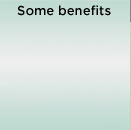Roth IRA conversion calculator
Roth IRA conversions are now available to everyone
On January 1, 2010, all investors, regardless of income, became eligible to convert their tax-deferred retirement savings to tax-free Roth IRAs. Roth IRAs differ from Traditional IRAs in how contributions and withdrawals are taxed.
Contributions to a Roth IRA are not tax deductible, but all withdrawals are tax free, provided certain provisions are met. You may benefit from a Roth conversion if you expect to be in a higher tax bracket in retirement, already own taxable and tax-deferred savings accounts, or want to leave a financial legacy to future generations.
Assess the tax status of your investments
You cannot convert to a Roth IRA at this time
Converting to a Roth IRA requires you to have money in a tax-deferred Traditional IRA or employer-sponsored retirement plan. Since you did not report having any assets in those categories you cannot convert to a Roth IRA at this time.
Pursuing a comfortable retirement is an important financial goal. Talk to your financial advisor to learn more about the retirement savings options available to you.
Where your assets stand today
Before you decide Take the next few steps and tell us more about yourself. Then, we'll show you if a Roth IRA conversion may work for you.
How old are you?
| 25 and younger | 60 |
95 and older |
|
|
||
Generally, the younger you are, the more time you have to take advantage of the tax-free income you'll get with a Roth IRA.
Even though you'll have to pay taxes when you convert to a Roth IRA, these taxes may be at a lower rate than you'll face when you're older and in a potentially higher tax bracket.
Are you planning on leaving an inheritance?
|
|
If you're planning to pass on assets to children, grandchildren, or other beneficiaries, a Roth IRA may help you. With a Roth IRA, there are no required minimum withdrawals at age 72. Also, all withdrawals are tax free - even those made by your heirs - as long as certain requirements are met. These withdrawals can be stretched out over a beneficiary's lifetime, too. |
Do you think tax rates will be higher in the future?
|
|
You may believe that tax rates will be higher in the future. If rates do rise, converting to a tax-free Roth IRA today may save you money. When you retire and withdraw your money, you will not have a tax bill to pay, as long as certain conditions are met. |
Will your personal tax bracket rise when you retire?
|
|
You may be in a higher tax bracket when you retire. If that happens, tax-free withdrawals from a Roth IRA may save you a substantial amount of money. If your main goal is to leave an inheritance, you may want to consider your beneficiary's future tax bracket. Note: If you expect to be in a lower tax bracket in retirement, paying taxes today at a potentially higher rate may not make sense. |


Diversify your investments, both by asset class and tax treatment
Owning a mix of asset classes is essential in pursuing your long-term financial goals, and so is ensuring your investments are diversified by their tax status. If most of your money is in taxable or tax-deferred accounts, you may end up with a big tax bill when you retire and begin to withdraw your savings.
For that reason, most investors should consider holding a portion of their assets in a tax-free Roth IRA. And as a result of changes in the 2010 tax laws, Roth IRA conversions are now available to all investors.
Your results
These dots represent each question.
The size of the dot reflects the impacteach variable may have on your decision.














Your assets
Things to consider:
- Partial conversions - Does it make sense to convert only a portion of your assets?
- Liquidity - Do you have liquid assets outside of retirement accounts to pay the taxes due on a Roth conversion?
- Recharacterizations - Are you aware that you can undo a Roth conversion without taxes or penalties?
- After-tax contributions - Since non-deductible contributions were previously taxed, only subsequent earnings would be taxable on a conversion to a Roth IRA.
This material is for informational purposes only. It should not be considered tax advice. You should consult your tax or financial advisor to determine what may be best for your individual needs.
